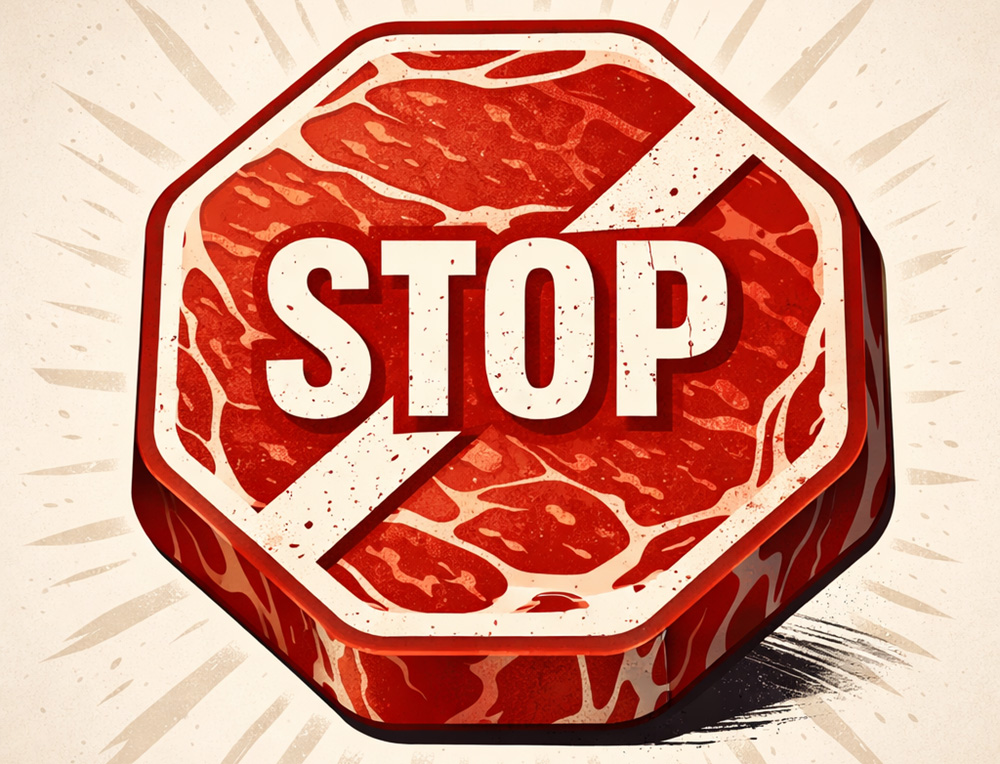

UPSIDE Foods secures key court victory against Florida’s cultivated meat ban
A federal judge has ruled that UPSIDE Foods can move forward with its lawsuit challenging Florida’s ban on the sale of cultivated meat, finding that the California company has plausibly alleged that the state’s actions violate constitutional protections against protectionist state laws.
US District Judge Mark Walker rejected Florida’s motion to dismiss the case on 26 April 2025, siding with UPSIDE’s claim that the ban discriminates against out-of-state companies in violation of the 'dormant' Commerce Clause. This legal doctrine prevents individual states from enacting policies that interfere with interstate commerce and maintains a national market for goods and services.
UPSIDE Foods, a pioneer in cultivated poultry products, filed its lawsuit in August 2024 after Governor Ron DeSantis signed Senate Bill 1084 into law. At the signing event, DeSantis positioned the legislation as part of a broader effort to protect Florida’s agriculture sector, saying the law would "save our beef" from what he portrayed as emerging threats. State Agriculture Commissioner Wilton Simpson supported the governor’s stance, warning of a "disgraceful attempt" to undermine the state’s farming traditions.
According to UPSIDE, these statements reflect the true motive behind the law: shielding Florida’s traditional meat producers from competition rather than protecting public health. The company argues that the ban effectively blocks cultivated meat, all of which is currently produced outside the state, from entering the Florida market.
Paul Sherman, Senior Attorney at the Institute for Justice and counsel for UPSIDE Foods, praised the court’s decision to let the case proceed. "States cannot close their borders to innovative competition just to protect entrenched local industries," he said, adding that the ruling sends a warning to other states considering similar prohibitions.
Cultivated meat, developed from animal cells without raising or slaughtering livestock, first made headlines in 2013. Since then, the technology has been gradually moving toward commercialization, with products gaining regulatory approval in Singapore, Israel, and more recently the USA. So far, cultivated meat sales in the USA have been limited to a few restaurant offerings.
Under Florida’s new law, it is a second-degree misdemeanor to manufacture or sell any meat product made from cultured animal cells. Penalties include fines of up to US$500, up to 60 days in jail, and potential revocation of business licenses for grocery stores and restaurants that offer cultivated meat. Alabama has enacted a similar ban, while states such as Arizona, Tennessee, and Texas have debated but not passed comparable legislation.
While UPSIDE also challenged the Florida law on the grounds that it was preempted by federal regulations, Judge Walker dismissed that argument. However, the judge agreed that UPSIDE had presented a credible case that the ban discriminates against interstate commerce by protecting in-state industries at the expense of out-of-state cultivated meat companies.
The company cited numerous comments made during the bill’s passage to support its claim, including DeSantis’s prominent use of 'SAVE OUR BEEF' signage at the signing ceremony and the attendance of Florida Cattlemen’s Association leaders. Several state legislators made statements suggesting that cultivated meat posed an economic threat to Florida ranchers, with one lawmaker suggesting that consumers who want to try lab-grown meat should "go to California."
As the case moves forward, Florida will need to demonstrate that its law serves a legitimate public interest unrelated to economic protectionism. UPSIDE argues that the state has no valid public health or safety justification for banning its products. The company’s cultivated chicken has been reviewed by the US Food and Drug Administration, which found no objections regarding its safety.
In its filings, UPSIDE asserts that cultivated meat may even pose fewer health risks than conventional meat because it is produced under clean, controlled conditions, avoiding exposure to animal waste, pathogens, and environmental toxins. Even if Florida could identify legitimate safety concerns, UPSIDE contends, less restrictive alternatives such as clear product labeling could address those issues without barring cultivated meat entirely.
Governor DeSantis has framed the ban not only as a defense of local agriculture but also as part of a broader cultural pushback. During public remarks, he linked the regulation to resistance against what he called "the global elite’s plan to force the world to eat meat grown in a petri dish or bugs".
UPSIDE Foods, however, insists it is not seeking to impose its products on anyone. The company states that it merely wants the opportunity to offer cultivated meat to consumers who choose to purchase it, a right that it argues Florida’s law unconstitutionally denies.
Judge Walker noted that while the ban is facially neutral, meaning it does not specifically mention out-of-state companies, its practical effect could still violate the dormant Commerce Clause if it places a burden on interstate commerce in favor of local industries. In allowing the case to move forward, Walker signaled that the state's justifications for the ban will face close scrutiny.
The penalties under the Florida law apply to any business selling cultivated meat to Florida consumers, regardless of whether the company is based in Florida or elsewhere. UPSIDE's argument rests on the assertion that the ban confers an economic benefit to traditional meat producers by removing potential competition from cultivated meat, which is predominantly produced by companies outside of Florida.
If Florida cannot demonstrate that its ban serves a legitimate purpose that cannot be achieved through less restrictive means, UPSIDE could succeed in overturning the law. The case is expected to proceed through the courts over the coming months.
If you have any questions or would like to get in touch with us, please email info@futureofproteinproduction.com

.png)






